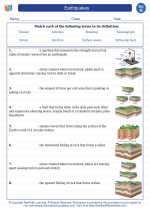Ecosystems
An ecosystem is a community of living organisms (plants, animals, and microorganisms) in conjunction with the nonliving components of their environment (such as air, water, and mineral soil), interacting as a system. These biotic and abiotic components are linked together through nutrient cycles and energy flows.
Components of Ecosystems
Ecosystems are made up of various components:
- Producers: Organisms that produce their own food through photosynthesis, such as plants and some types of bacteria.
- Consumers: Organisms that obtain energy by consuming other organisms, such as herbivores, carnivores, and omnivores.
- Decomposers: Organisms that break down dead organic matter, releasing nutrients back into the ecosystem, such as fungi and bacteria.
- Abiotic factors: Non-living components of the ecosystem, including sunlight, temperature, water, soil, and air.
Energy Flow in Ecosystems
Energy flows through ecosystems in a one-way direction. It enters the ecosystem through producers, is passed on to consumers, and eventually dissipates as heat.
Study Tips
When studying ecosystems, it's important to understand the interactions between living and non-living components, as well as the flow of energy and nutrients within the system.
- Learn the different types of ecosystems, such as forests, grasslands, deserts, and aquatic ecosystems.
- Understand the roles of producers, consumers, and decomposers in the ecosystem.
- Study nutrient cycles, such as the carbon, nitrogen, and water cycles, and how they impact ecosystems.
- Explore the impact of human activities on ecosystems, such as deforestation, pollution, and climate change.
By understanding the intricacies of ecosystems, you can appreciate the delicate balance of nature and the importance of preserving and protecting these diverse environments.
.◂Science Worksheets and Study Guides Eighth Grade. Earthquakes
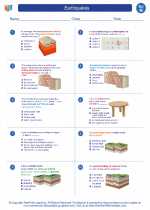
 Worksheet/Answer key
Worksheet/Answer key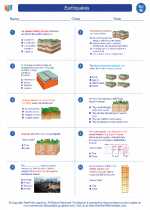
 Worksheet/Answer key
Worksheet/Answer key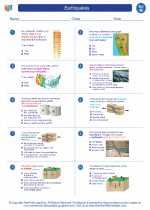
 Vocabulary/Answer key
Vocabulary/Answer key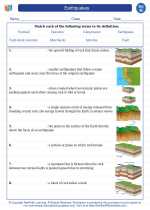
 Vocabulary/Answer key
Vocabulary/Answer key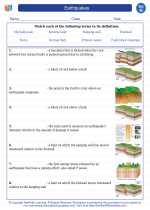
 Vocabulary/Answer key
Vocabulary/Answer key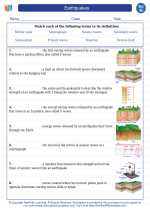
 Vocabulary/Answer key
Vocabulary/Answer key